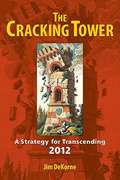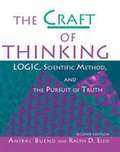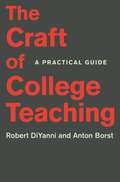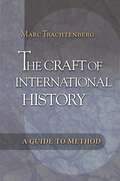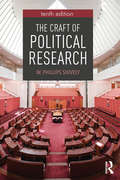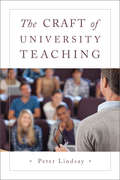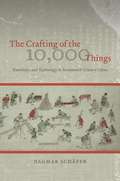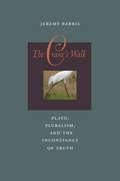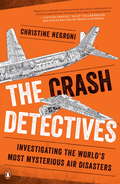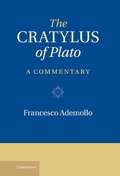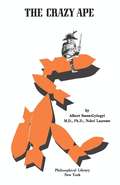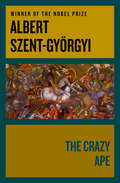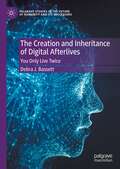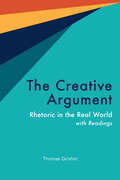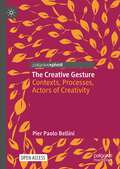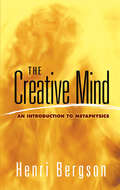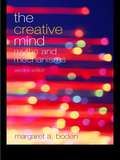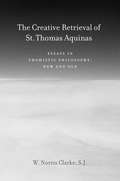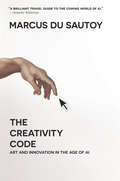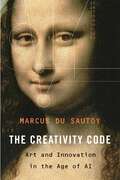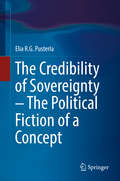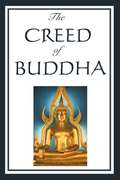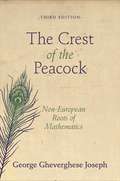- Table View
- List View
The Cracking Tower: A Strategy for Transcending 2012
by Jim Dekorne"One needn't ingest psychedelics, be a shaman, or believe in prophecy to see that countless environmental and social imbalances are about to converge into an inevitable 'perfect storm' at some time in the very near future. 'Singularity' is a word that means 'exponential change,' and whether or not you accept the 2012 prophecy, it is certain that you are already reeling under the accelerating techno-socio-ecological transformations now altering our reality. This crisis is clearly in process, regardless of what date one picks for its culmination. To acknowledge this is not the same as believing that space aliens will whisk us home in a UFO-there are too many synchronicities here to ignore. Despite the abysmal track record of apocalypse prediction, this is one end-of-the-world 'prophecy' that is actually coming true: by any standard of measurement, our old familiar world is disappearing forever-it just has a bit further to go before trends already in process fulfill themselves. "
The Craft Of Thinking: Logic, Scientific Method And The Pursuit Of Truth
by Ralph Ellis Anibal BuenoThe Craft of Thinking: Logic, Scientific Method and the Pursuit of Truth
The Craft of College Teaching: A Practical Guide
by Robert DiYanni Anton BorstThe essential how-to guide to successful college teaching and learningThe college classroom is a place where students have the opportunity to be transformed and inspired through learning—but teachers need to understand how students actually learn. Robert DiYanni and Anton Borst provide an accessible, hands-on guide to the craft of college teaching, giving instructors the practical tools they need to help students achieve not only academic success but also meaningful learning to last a lifetime.The Craft of College Teaching explains what to teach—emphasizing concepts and their relationships, not just isolated facts—as well as how to teach using active learning strategies that engage students through problems, case studies and scenarios, and practice reinforced by constructive feedback. The book tells how to motivate students, run productive discussions, create engaging lectures, use technology effectively, and much more. Interludes between chapters illustrate common challenges, including what to do on the first and last days of class and how to deal with student embarrassment, manage group work, and mentor students effectively. There are also plenty of questions and activities at the end of each chapter.Blending the latest research with practical techniques that really work, this easy-to-use guide draws on DiYanni and Borst's experience as professors, faculty consultants, and workshop leaders. Proven in the classroom and the workshop arena, The Craft of College Teaching is an essential resource for new instructors and seasoned pros alike.
The Craft of International History: A Guide to Method
by Marc TrachtenbergThis is a practical guide to the historical study of international politics. The focus is on the nuts and bolts of historical research--that is, on how to use original sources, analyze and interpret historical works, and actually write a work of history. Two appendixes provide sources sure to be indispensable for anyone doing research in this area. The book does not simply lay down precepts. It presents examples drawn from the author's more than forty years' experience as a working historian. One important chapter, dealing with America's road to war in 1941, shows in unprecedented detail how an interpretation of a major historical issue can be developed. The aim throughout is to throw open the doors of the workshop so that young scholars, both historians and political scientists, can see the sort of thought processes the historian goes through before he or she puts anything on paper. Filled with valuable examples, this is a book anyone serious about conducting historical research will want to have on the bookshelf.
The Craft of Political Research
by W. Phillips ShivelyThe Craft of Political Research immerses readers not only in how political scientists work but also in how ideas produce research questions and guide the selection of research methods. Emphasizing the internal logic of research methods and the collaborative nature of the research process, this slender text explores the design behind interesting questions, problems in measurement and analysis, and key statistical methods. Brief and inexpensive to include in any course, The Craft of Political Research's elegant explanations inspire a big picture understanding of how political scientists explain political reality and encourage students to create their own inventive, original, and bold research work. Features include: Focuses on the big picture of how good research leads to good theories instead of just what research method to use. Provides concise and accessible coverage of key topics, including the nature of research, research design, sampling, statistical analysis, ethics, and more. Includes detailed examples of classic and contemporary political science research to give students models for their own original research.
The Craft of Power
by R. G. H. SiuThis book is directed primarily to executives seeking to expand their personal power. The book is a realistic description of the true nature of personal power as practiced and fought for in the competitive world of leaders, managers, and social activists and acts as a guide to influencing and managing organizations and people.
The Craft of University Teaching
by Peter LindsayWhat does university teaching – as a craft – look like? What changes does a craft perspective suggest for higher education? The Craft of University Teaching addresses these questions in both a general sense – What does the act of teaching become when treated as a craft? What changes to a professor’s educational philosophy does it require? – and with respect to the practical, everyday tasks of university professors, such as the use and misuse of technology, the handling of academic dishonesty, the assignment of course reading, and the instilling of enthusiasm for learning. Intended for professors of all academic disciplines who either enjoy teaching or wish to enjoy it more, The Craft of University Teaching is a provocative and accessible book containing practical advice gleaned from the academic literature on pedagogy. In an era of increased bureaucratic oversight, rapidly diminishing budgets, and waves of technological distraction, The Craft of University Teaching provokes reflection on matters of pedagogy that are too often taken as settled. In so doing, it seeks to reclaim teaching as the intellectually vibrant and intrinsically rewarding endeavor that it is.
The Crafting of the 10,000 Things: Knowledge and Technology in Seventeenth-Century China
by Dagmar SchäferThe last decades of the Ming dynasty, though plagued by chaos and destruction, saw a significant increase of publications that examined advances in knowledge and technology. Among the numerous guides and reference books that appeared during this period was a series of texts by Song Yingxing (1587–1666?), a minor local official living in southern China. His Tiangong kaiwu, the longest and most prominent of these works, documents the extraction and processing of raw materials and the manufacture of goods essential to everyday life, from yeast and wine to paper and ink to boats, carts, and firearms. In The Crafting of the 10,000 Things, Dagmar Schäfer probes this fascinating text and the legacy of its author to shed new light on the development of scientific thinking in China, the purpose of technical writing, and its role in and effects on Chinese history. Meticulously unfolding the layers of Song’s personal and cultural life, Schäfer chronicles the factors that motivated Song to transform practical knowledge into written culture. She then examines how Song gained, assessed, and ultimately presented knowledge, and in doing so articulates this era’s approaches to rationality, truth, and belief in the study of nature and culture alike. Finally, Schäfer places Song’s efforts in conjunction with the work of other Chinese philosophers and writers, before, during, and after his time, and argues that these writings demonstrate collectively a uniquely Chinese way of authorizing technology as a legitimate field of scholarly concern and philosophical knowledge. Offering an overview of a thousand years of scholarship, The Crafting of the 10,000 Things explains the role of technology and crafts in a culture that had an outstandingly successful tradition in this field and was a crucial influence on the technical development of Europe on the eve of the Industrial Revolution.
The Crane's Walk: Plato, Pluralism, and the Inconstancy of Truth
by Jeremy BarrisIn The Crane's Walk, Jeremy Barris seeks to show that we can conceive and live with a pluralism of standpoints with conflicting standards for truth--with the truth of each being entirely unaffected by the truth of the others. He argues that Plato's work expresses this kind of pluralism, and that this pluralism is important in its own right, whether or not we agree about what Plato's standpoint is.The longest tradition of Plato scholarship identifies crucial faults in Plato's theory of Ideas. Barris argues that Plato deliberately displayed those faults, because he wanted to demonstrate that basic kinds of error or illogic have dimensions that are crucial to the establishing of truth. These dimensions legitimate a paradoxical coordination of logically incompatible conceptions of truth. Connecting this idea with emerging currents of Plato scholarship, he emphasizes, in addition to the dialogues' arguments, the importance of their nonargumentative features, including drama, myths, fictions, anecdotes, and humor. These unanalyzed nonargumentative features function rigorously, as a lever with which to examine the enterprise of rational argument itself, without presupposing its standards or illegitimately assimilating any position to the standards of another.Today, communities are torn apart by conflicts within and between a host of different pluralist and absolutist commitments. The possibility developed in this book-a coordination of absolute and relative truth that allows an understanding of some relativist and some absolutist positions as being fully legitimate and as capable of existing in a relation to their opposites-may contribute to perspectives for resolving these conflicts.
The Crash Detectives: Investigating the World's Most Mysterious Air Disasters
by Christine Negroni"Negroni is a talented aviation journalist who clearly understands the critically important part the human factor plays in aviation safety." --Captain Chesley "Sully" Sullenberger, pilot of US Airways 1549, the Miracle on the HudsonOne of The Wall Street Journal's 3 Books Every Geek Should Read This FallA fascinating exploration of how humans and machines fail--leading to air disasters from Amelia Earhart to MH370--and how the lessons learned from these accidents have made flying safer. In The Crash Detectives, veteran aviation journalist and air safety investigator Christine Negroni takes us inside crash investigations from the early days of the jet age to the present, including the search for answers about what happened to the missing Malaysia Airlines Flight 370. As Negroni dissects what happened and why, she explores their common themes and, most important, what has been learned from them to make planes safer. Indeed, as Negroni shows, virtually every aspect of modern pilot training, airline operation, and airplane design has been shaped by lessons learned from disaster. Along the way, she also details some miraculous saves, when quick-thinking pilots averted catastrophe and kept hundreds of people alive. Tying in aviation science, performance psychology, and extensive interviews with pilots, engineers, human factors specialists, crash survivors, and others involved in accidents all over the world, The Crash Detectives is an alternately terrifying and inspiring book that might just cure your fear of flying, and will definitely make you a more informed passenger."Christine Negroni combines her investigative reporting skills with an understanding of the complexities of air accident investigations to bring to life some of history's most intriguing and heartbreaking cases." --Bob Woodruff, ABC News From the Trade Paperback edition.
The Cratylus of Plato
by Francesco AdemolloThe Cratylus, one of Plato's most difficult and intriguing dialogues, explores the relations between a name and the thing it names. The questions that arise lead the characters to face a number of major issues: truth and falsehood, relativism, etymology, the possibility of a perfect language, the relation between the investigation of names and that of reality, the Heraclitean flux theory and the Theory of Forms. This is the first full-scale commentary on the Cratylus and offers a definitive interpretation of the dialogue. It contains translations of the passages discussed and a line-by-line analysis which deals with textual matters and unravels Plato's dense and subtle arguments, reaching a novel interpretation of some of the dialogue's main themes as well as of many individual passages. The book is intended primarily for graduate students and scholars, both philosophers and classicists, but presupposes no previous acquaintance with the subject and is accessible to undergraduates.
The Crazy Ape
by Albert Szent-GyörgyiA Nobel Prize winner, Dr. Szent-Gyorgyi concerns himself with the underlying forces and conditions that have prevented the realization of the higher possibilities of the American Dream, and, by extension, of all mankind. He addresses himself especially to the youth of the world in his attempt to show how man, the more he progresses technologically, seems the more to regress psychologically and socially, until he resembles his primate ancestors in a state of high schizophrenia. The fundamental question asked by this book is: Why is it that most of the scientific research that is done to elevate human life serves in the end to destroy it? That this phenomenon exists is unarguable. How to alter it is the problem the author tackles. He finds the possibility, indeed the instrument of our survival, in our youth. Dr. Szent-Gyorgyi calls upon youth the world over to organize and exercise their power to create a new world. He implores them not to waste their energies in petulance and frustration the world is ripe for the radical changes needed for man s survival, and for youth to fritter away their opportunity would be to compound the tragedy and seal the fate of mankind. Born into the fourth generation of a noted family of scientists in Hungary, Albert Szent-Gyorgyi decided at an early age to devote his life to biological research. As a medical student he required international recognition for his studies in microscopic anatomy. The First World War, which he spent in the service of the Austro-Hungarian army, caused a break in his career. After the war he left his devastated country to work for ten years in various countries, notably Germany, Holland, England and the United States. He then returned to his native Hungary to help rebuild science there. In 1937, he won the Nobel Prize for his studies on metabolism and for the discovery of ascorbic acid (Vitamin C). He soon found himself in conflict with the growing movement of Nazism, was arrested, escaped, and was hunted for years by the secret service of Hitler. After World War II, disappointed by Soviet colonialism and the terrorist methods of Stalin, he left Hungary and found refuge at the Marine Biological Laboratory of Woods Hole, Massachusetts.
The Crazy Ape: Written by a Biologist for the Young
by Albert Szent-GyörgyiA Nobel Prize winner, Dr. Szent-Györgyi concerns himself with the underlying forces and conditions that have prevented the realization of the higher possibilities of the American Dream, and, by extension, of all mankind. He addresses himself especially to the youth of the world in his attempt to show how man, the more he progresses technologically, seems the more to regress psychologically and socially, until he resembles his primate ancestors in a state of high schizophrenia. The fundamental question asked by this book is: why is it that most of the scientific research that is done to elevate human life serves in the end to destroy it? That this phenomenon exists is unarguable. How to alter it is the problem the author tackles. He finds the possibility, indeed the instrument of our survival, in our youth. Dr. Szent-Györgyi calls upon the youth the world over to organize and exercise their power to create a new world. He implores them not to waste their energies in petulance and frustration—the world is ripe for the radical changes needed for man&’s survival, and for youth to fritter away their opportunity would be to compound the tragedy and seal the fate of mankind.
The Crazy Ape: Written by a Biologist for the Young
by Albert Szent-GyörgyiA Nobel Prize winner, Dr. Szent-Györgyi concerns himself with the underlying forces and conditions that have prevented the realization of the higher possibilities of the American Dream, and, by extension, of all mankind. He addresses himself especially to the youth of the world in his attempt to show how man, the more he progresses technologically, seems the more to regress psychologically and socially, until he resembles his primate ancestors in a state of high schizophrenia. The fundamental question asked by this book is: why is it that most of the scientific research that is done to elevate human life serves in the end to destroy it? That this phenomenon exists is unarguable. How to alter it is the problem the author tackles. He finds the possibility, indeed the instrument of our survival, in our youth. Dr. Szent-Györgyi calls upon the youth the world over to organize and exercise their power to create a new world. He implores them not to waste their energies in petulance and frustration—the world is ripe for the radical changes needed for man&’s survival, and for youth to fritter away their opportunity would be to compound the tragedy and seal the fate of mankind.
The Creation and Inheritance of Digital Afterlives: You Only Live Twice (Palgrave Studies in the Future of Humanity and its Successors)
by Debra J. BassettThis book explores how social networking platforms such as Facebook, Twitter, and WhatsApp ‘accidentally’ enable and nurture the creation of digital afterlives, and, importantly, the effect this digital inheritance has on the bereaved. Debra J. Bassett offers a holistic exploration of this phenomenon and presents qualitative data from three groups of participants: service providers, digital creators, and digital inheritors. For the bereaved, loss of data, lack of control, or digital obsolescence can lead to a second loss, and this book introduces the theory of ‘the fear of second loss’. Bassett argues that digital afterlives challenge and disrupt existing grief theories, suggesting how these theories might be expanded to accommodate digital inheritance. This interdisciplinary book will be of interest to sociologists, cyber psychologists, philosophers, death scholars, and grief counsellors. But Bassett’s book can also be seen as a canary in the coal mine for the ‘intentional’ Digital Afterlife Industry (DAI) and their race to monetise the dead. This book provides an understanding of the profound effects uncontrollable timed posthumous messages and the creation of thanabots could have on the bereaved, and Bassett’s conception of a Digital Do Not Reanimate (DDNR) order and a voluntary code of conduct could provide a useful addition to the DAI. Even in the digital societies of the West, we are far from immortal, but perhaps the question we really need to ask is: who wants to live forever?
The Creative Argument: Rhetoric in the Real World, with Readings
by Thomas GirshinThe Creative Argument sets itself apart from its competitors by presenting a series of compelling works of literary nonfiction that challenge what students think they know about arguments. Each chapter begins with an engaging argument from a work of nonfiction, followed by an in-depth yet accessible analysis of a key aspect of argumentation. Suitable for both courses in argument and first-year writing, the principles and strategies outlined in the text help students become more creative and critical as rhetoricians, both inside the classroom and out.
The Creative Gesture: Contexts, Processes, Actors of Creativity (Palgrave Studies in Creativity and Culture)
by Pier Paolo BelliniThis open access book offers a concise overview of the theories constructed within the various human sciences around the theme of creativity as a symbolic capacity to link things together: it manifests itself when the individual endowed with a certain type of intelligence encounters cultural and social conditions that enable them to develop that capacity to the maximum, rather than inhibiting it or diverting it to other fields where it is doomed to failure. Even the most intimate of human expressiveness is considered as a result of an active social relationality. Social dimensions of creativity (evaluation, primary socialization, motivation, leadership) and “creative processes” (creative attitude, creative gesture, divergent thinking, problem-solving capacity, interdisciplinary approach, randomness, algorithmic creativity) are also analysed.The book concludes by evaluating the course taken in the light of the relational theory of society: the development of creativity cannot beconceived outside of self-other relations.This book is the result of a translation done with the help of artificial intelligence. The text has subsequently been revised further by a professional copy editor in order to refine the work stylistically.
The Creative Mind: An Introduction to Metaphysics (Dover Books On Western Philosophy)
by Henri BergsonThe final published book by Nobel Prize-winning author and philosopher Henri Bergson (1859–1941), La pensée et le mouvant (translated here as The Creative Mind), is a masterly autobiography of his philosophical method. Through essays and lectures written between 1903 and 1923, Bergson retraces how and why he became a philosopher, and crafts a fascinating critique of philosophy itself. Until it leaves its false paths, he demonstrates, philosophy will remain only a wordy dialectic that surmounts false problems.With masterful skill and intensity, Bergson shows that metaphysics and science must be rooted in experience for philosophy to become a genuine search for truth. And in the quest for unanswered questions, the spiritual dimension of human life and the importance of intuition must be emphasized. A source of inspiration for physicists as well as philosophers, Bergson's introduction to metaphysics reveals a philosophy that is always on the move, blending man's spiritual drive with his mastery of the material world.
The Creative Mind: Myths and Mechanisms
by Margaret A. BodenHow is it possible to think new thoughts? What is creativity and can science explain it? And just how did Coleridge dream up the creatures of The Ancient Mariner? When The Creative Mind: Myths and Mechanisms was first published, Margaret A. Boden's bold and provocative exploration of creativity broke new ground. Boden uses examples such as jazz improvisation, chess, story writing, physics, and the music of Mozart, together with computing models from the field of artificial intelligence to uncover the nature of human creativity in the arts. The second edition of The Creative Mind has been updated to include recent developments in artificial intelligence, with a new preface, introduction and conclusion by the author. It is an essential work for anyone interested in the creativity of the human mind.
The Creative Retrieval of Saint Thomas Aquinas: Essays in Thomistic Philosophy, New and Old
by W. Norris Clarke S.J.W. Norris Clarke has chosen the fifteen essays in this collection, five of which appear here for the first time, as the most significant of the more than seventy he has written over the course of a long career. Clarke is known for his development of a Thomistic personalism. To be a person, according to Saint Thomas, is to take conscious self-possession of one's own being, to be master of oneself. But our incarnate mode of being human involves living in a body whose life unfolds across time, and is inevitably dispersed across time. If we wish to know fully who we are, we need to assimilate and integrate this dispersal, so that our lives become a coherent story. In addition to the existentialist thought of Etienne Gilson and others, Clarke draws on the Neoplatonic dimension of participation. Existence as act and participation have been the central pillars of his metaphysical thought, especially in its unique manifestation in the human person.The essays collected here cover a wide range of philosophical, ethical, religious, and aesthetic topics. Through them sounds a very personal voice, one that has inspired generations of students and scholars.
The Creativity Code: Art and Innovation in the Age of AI
by Marcus Du SautoyMost books on AI focus on the future of work. But now that algorithms can learn and adapt, does the future of creativity also belong to well-programmed machines? To answer this question, Marcus du Sautoy takes us to the forefront of creative new technologies and offers a more positive and unexpected vision of our future cohabitation with machines.
The Creativity Code: Art and Innovation in the Age of AI
by Marcus du SautoyMost books on AI focus on the future of work. But now that algorithms can learn and adapt, does the future of creativity also belong to well-programmed machines? To answer this question, Marcus du Sautoy takes us to the forefront of creative new technologies and offers a more positive and unexpected vision of our future cohabitation with machines.
The Credibility of Sovereignty - The Political Fiction of a Concept
by Elia R.G. PusterlaThe book deeply analyses the bilateral relations between Switzerland and the European Union and their effect on the former's sovereignty in the context of Europeanisation. This touches on philosophical debates on the complexity of sovereignty. What sovereignty is at stake when talking about Swiss-EU relations? This issue not only faces the elusiveness of sovereignty as a concept, but also the proliferation of hypocrisy on its presence within states. The book encounters the deconstructionist hypothesis stating that there is nothing to worry about but the belief there is something to worry about. Derrida's deconstruction of sovereignty allows indeed one to grasp the fictional essence of sovereignty based on the metaphysics of presence. The presence of self-positing sovereign ipseity is fictional since absent in the present, but spectrally present in the belief of its presence to come. Sovereignty is a matter of credibility, or the credible promise of a normative statement to come. Hence, the book challenges the realist/neorealist argument stating that states are credibly sovereign until proven otherwise and explains that the debate on state sovereignty calls for the unveiling of this hypocritical epistemology cunningly disguised as an objective presence. Swiss-EU relations thus become the cornerstone to not only theorise but also test sovereignty and deconstruct the two ontological and epistemological sides of the same coin, or the modern hypocrisy of sovereignty. This deconstruction constitutes the very problématique of any attempt to understand whether and how a state can be sovereign and solve the problem as to how to neutralise the différance and identify the difference between credible and incredible claims of sovereignty. This problématique connects the theory and practice of sovereignty innovatively, providing positivist evidence on the arguable credibility of the Swiss claim of sovereignty and confirming the presence of a theological dimension within politics.
The Creed of Buddah
by BuddahPhilosophy is, in its essence, the quest of reality. In the attempt to determine what is real, one has to choose, in the first instance, between the percipient self and the things that it perceives. This choice may seem to be purely metaphysical, but sooner or later it becomes a moral choice and one which is decisive of the chooser's destiny.
The Crest of the Peacock
by George Gheverghese JosephFrom the Ishango Bone of central Africa and the Inca quipu of South America to the dawn of modern mathematics, The Crest of the Peacock makes it clear that human beings everywhere have been capable of advanced and innovative mathematical thinking. George Gheverghese Joseph takes us on a breathtaking multicultural tour of the roots and shoots of non-European mathematics. He shows us the deep influence that the Egyptians and Babylonians had on the Greeks, the Arabs' major creative contributions, and the astounding range of successes of the great civilizations of India and China. The third edition emphasizes the dialogue between civilizations, and further explores how mathematical ideas were transmitted from East to West. The book's scope is now even wider, incorporating recent findings on the history of mathematics in China, India, and early Islamic civilizations as well as Egypt and Mesopotamia. With more detailed coverage of proto-mathematics and the origins of trigonometry and infinity in the East, The Crest of the Peacock further illuminates the global history of mathematics.
